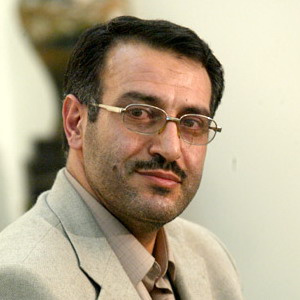Foreign Policy: A Means to Accomplish a Nation’s Moral Values
Interview with former government spokesman Abdullah Ramezanzadeh about the idea of Dialogue among Civilizations

Shahrivar 30th (September 20th) has been designated by the Reform Government as the Day of Dialogue of Civilizations. Former President Mohammad Khatami has strongly criticized the unfair attitudes towards this plan.
Iranian Diplomacy has interviewed former government spokesman Abdullah Ramezanzadeh about the idea of “Dialogue among Civilizations” and the foreign policy of the 7th and 8th governments.
Q: Mr. Khatami has announced that injustice has been done to his “Dialogue among Civilizations” plan and that warmongers have opposed the idea here and there throughout the world. What are the reasons for such opposition?
A: Foreign policy is not a goal per se but a means for a nation to accomplish its ideals in the areas of development, progress and security. Therefore, any means that could help a nation attain its values is worth defending. Mr. Khatami’s foreign policy too was following this course of action. In other words, all the foreign policy decisions were made on this basis and to decide whether those decisions would serve our development and security or not. In the meantime, in the modern world of propaganda campaign and under conditions that the Iranian nation was being accused of warmongering, Mr. Khatami by initiating and pursuing the idea of dialogue among civilizations succeeded in outmaneuvering the real warmongers.
Today it is crystal clear who are really opposed to this initiative. The first adversaries of the plan are the US foreign policy apparatus and its offensive machine, namely the Pentagon. There are others inside the country who have lately criticized the plan and are opposed to it. These people have direct contact with the US defense policy apparatus and have received their scholarship from them and are their supporters. Therefore, it is obvious who are against and who really follow the policy of warmongering.
Another important point is that all the peace loving states in the world have supported the idea and this proves its global value. Moreover, according to our religious teachings, we have no right to wage war against anyone unless we come under attack. For the same reason, I am surprised to see some are talking about attacking others as a religious obligation. The policy of dialogue among civilizations has no conflict with our values and religious discourse. It is also a proven fact that the plan served the interests of the Iranian nation more than ever.
Q: The 9th government (of Ahmadinejad) has rejected the initiative (of dialogue among civilizations) and accused its predecessor of inaction in foreign policy. Was the Khatami government passive in its foreign policy?
A: Passive diplomacy means a policy where certain damage is done to a nation. When speaking about the objective foreign policy achievements of Mr. Khatami one may raise the question of the temporary suspension of uranium enrichment. Mr. Khatami made some progress based on a long term plan with the aim of confidence building. Those who did the opposite and thought that they would be able to promote the foreign policy by offensive means have now reached a point that they allow foreign spies to inspect all our military centers. Today, in order to establish contacts with them (Americans) they have resorted to those who have studied at the Pentagon and picked them as advisors. Mr. Khatami’s foreign policy opened the way to foreign investment and commissioning of huge projects in South Pars and Assaluyeh. It materialized joint cooperation in the field of foreign policy and opened the door of big international markets to Iranian goods.
On the other hand, the adventurous policy dubbed “offensive policy” has caused severe sanctions, closure of many projects, and minimized foreign investment. What kind of foreign policy is this which is to total detriment of the Iranian nation? Mr. Khatami’s foreign policy was precisely based on what the Leadership (Supreme Leader) had announced: dignity; expediency; and wisdom. But the present government’s foreign policy is purely based on adventurism and is against the (interests of the) nation.
Q: Mr. Khatami has spoken about some kind of dictatorship in the domain of foreign policy and even inside Iran. How would you describe this dictatorship?
A: The truth is that powerful countries and owners of nuclear arsenals in the world resort to bullying. The veto right is a bullying right and is exercised at the international level. But the ways to counter this bullying are clear and specific. Because there are some who bully you outside, you should not trample upon the rights of the nation inside. Therefore, those who overlook the rights of their own nation cannot claim to be fighting bullying in the international scene because they are both of the same brand. Those who close down newspapers inside; would not let the voice of opposition be heard; interrupt meetings; insult people and disqualify candidates for no legal reasons, they are precisely working in line with the global bullies. 
